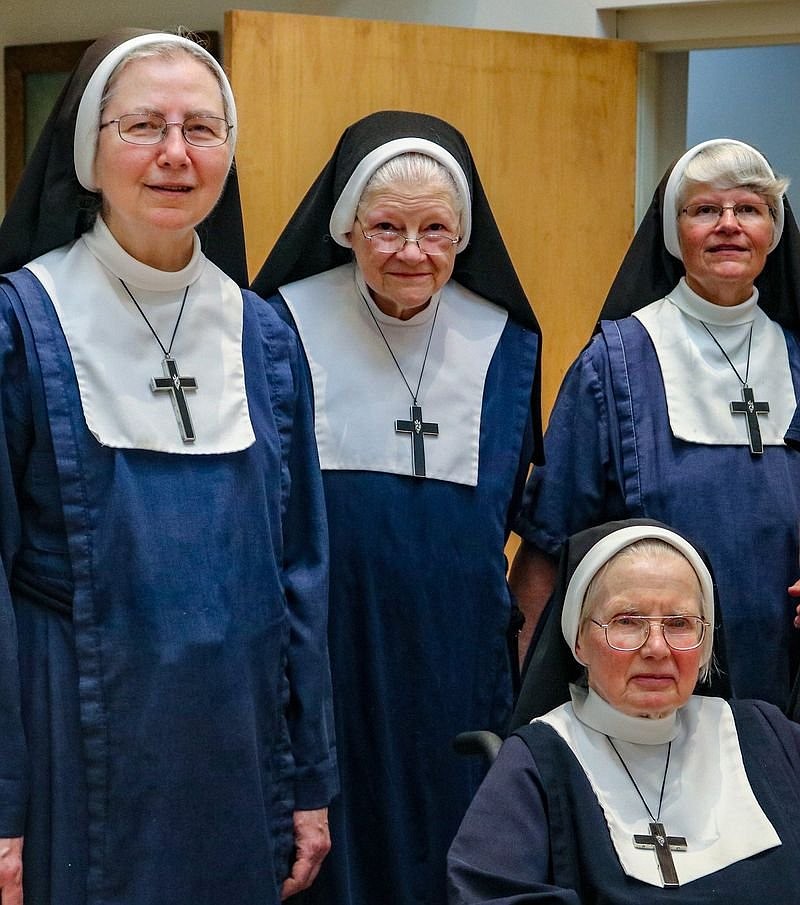April 18, 2024 at 9:06 a.m.
New York's highest court hears Catholic-led challenge to state abortion mandate
(OSV News) -- The fight by religious groups against New York state's abortion mandate -- requiring most private insurance plans to cover abortion -- went to the state's highest court April 16.
At issue before the New York Court of Appeals is who gets to decide what constitutes a religious organization that can apply for an exemption to the abortion mandate.
In Diocese of Albany v. Vullo, a case that has bounced around state court for a few years, a coalition of religious groups, including Catholic women religious and dioceses and faith-based social ministries, sued New York after the state mandated they cover abortion in their employee health insurance plans in violation of their religious beliefs.
The state Department of Financial Services, or DFS, included the mandate in 2017, although abortion has been legal for decades prior.
New York legalized abortion through 24 weeks with a Republican-controlled Legislature three years before the U.S. Supreme Court's Roe v. Wade decision (overturned in 2022) legalized it nationwide. In 2019, the state under Gov. Andrew Cuomo and the Democratic-controlled Legislature, expanded legal abortion even further throughout the third trimester. The state's residents are set this November to vote on a constitutional amendment that would protect abortion access by banning discrimination based on "pregnancy, pregnancy outcomes, and reproductive healthcare and autonomy."
In 2017, when the state's abortion mandate was originally proposed, the DFS promised to exempt employers with religious objections. However, the exemption was since narrowed to cover religious groups that primarily teach religion and mostly serve and hire only those who share their faith.
As a result, an exemption cannot apply to Catholic organizations such as Catholic Charities, which seek to serve all in need, regardless of faith.
In 2021, the U.S. Supreme Court vacated the rulings by New York state courts that left the mandate in place and asked them to reconsider the case in light of its ruling in Fulton v. Philadelphia. In that case, the high court ruled Philadelphia's refusal to contract with Catholic Social Services for the provision of foster care services -- unless CSS agreed to certify same-sex couples as foster parents -- violated the First Amendment's free exercise clause.
The case, which now sits before the New York Court of Appeals, was brought by two public-interest law firms, Jones Day and Becket Law, representing Catholic, Anglican/Episcopal, Lutheran and Baptist religious groups.
Their brief argues, "The Abortion Mandate is not 'generally applicable' because it contains an express exemption for some religious organizations but not others. That exemption applies only to organizations for which 'the purpose of the entity' is 'inculcation of religious values,' and even then, only if the entity also 'primarily employs' and 'primarily serves persons who share the religious tenets of the entity.'"
This exemption, the brief continues, "bears no relationship to any of the State's purported interests in the Abortion Mandate -- and the State has never argued otherwise.
"Indeed, a religious entity's 'purpose' or whom the entity 'serves' bears no apparent link to its employees' need for abortion services, ability to access such services without employer-sponsored coverage, or ability to compare healthcare plans that offer different scopes of coverage," the brief stated. "To the contrary, the exemption reflects only the State's decision that the religious beliefs of certain entities are more 'worthy of solicitude' than the religious beliefs of other entities."
And that, Noel Francisco, a former U.S. solicitor general who argued the case for Jones Day, put the state in the position of deciding who is authentically religious.
"Do a pro-life Catholic and a pro-choice Catholic share the same religious tenets?" he asked the judges April 16. Francisco said it's "not a question this court should answer."
He asked the court to allow religious organizations to make that decision for themselves, and allow exemptions based on the beliefs of the organization, and not on whom they employ.
Under the current rule for exemptions, Francisco argued, "the state has to engage in quantitative analysis to determine what is a religious organization."
Laura Etlinger, an assistant solicitor general for the state, argued that the burden of the mandate "is constitutionally tolerable" if rules "are objective and uniformly applied."
Among the Catholic appellants in the case are the dioceses of Albany and Ogdensburg; the Brooklyn, Ogdensburg and Albany dioceses' respective Catholic Charities; DePaul Housing Management and Teresian House in Albany.
A decision by the Court of Appeals is not expected for several weeks.
Kurt Jensen reports for OSV News from Washington.
- Pope accepts resignation of Rochester Bishop Matano, names Bishop Bonnici as successor
- Shrine prepares to share Mother Seton’s ‘Revolutionary’ impact as America turns 250
- Russell Shaw remembered as ‘giant of the Church’ for contribution to Catholic communications
- Pro-life groups push back after Trump tells House GOP to be ‘flexible’ on Hyde Amendment
- Torrential rains, looming deadline, don’t deter last-minute pilgrims
- Wyoming Supreme Court strikes down abortion laws, including abortion pill ban
- Caribbean bishops had repeated plea for peace ahead of US attack on Venezuela
- SEEK 2026 summons youth to draw close to Christ, discover his plan for their lives
- As jubilee year ends, the faithful heed Pope Leo’s call to keep the church alive
- Pope Leo’s first Extraordinary Consistory: What to expect?








Comments:
You must login to comment.